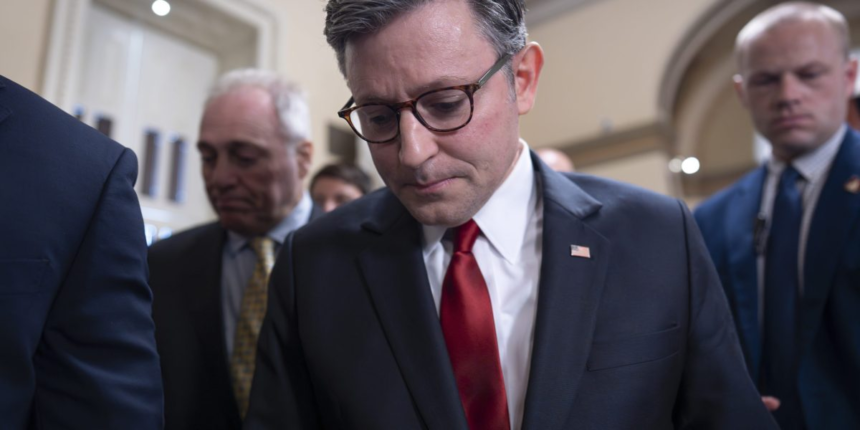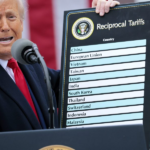“Our way is to plow through and get it done,” Johnson said, emerging in the middle of the night from a series of closed-door meetings. He expected votes later Thursday morning. “We will meet our July 4th deadline.”
But as voting stalled Trump, who hosted lawmakers Wednesday at the White House and spoke with some by phone, lashed out in a midnight post: “What are the Republicans waiting for??? What are you trying to prove???” He also warned starkly of political fallout from the delay “COSTING YOU VOTES!!!”
Several Republicans are balking at being asked to rubber-stamp the Senate version less than 24 hours after passage. A number of moderate Republicans from competitive districts have objected to the Senate bill’s cuts to Medicaid, while conservatives have lambasted the legislation as straying from their fiscal goals.
It falls to Johnson and his team to convince them that the time for negotiations is over. They will need assistance from Trump to close the deal, and lawmakers headed to the White House for a two-hour session Wednesday to talk to the president about their concerns.
“The president’s message was, ‘We’re on a roll,’” said Rep. Ralph Norman, R-S.C. “He wants to see this.”
Republicans are relying on their majority hold of Congress to push the package over a wall of unified Democratic opposition. No Democrats voted for bill in the Senate and none were expected to do so in the House.
“Hell no!” said House Democratic Leader Hakeem Jeffries, flanked by fellow Democrats outside the Capitol.
In an early warning sign of Republican resistance, a resolution setting up terms for debating Trump’s bill barely cleared the House Rules Committee on Wednesday morning. As soon as it came to the full House, it stalled out as GOP leadership waited for lawmakers who were delayed coming back to Washington and conducted closed-door negotiations with holdouts.
By nightfall, as pizzas and other dinners were arriving at the Capitol, the next steps were uncertain.
The bill would extend and make permanent various individual and business tax breaks from Trump’s first term, plus temporarily add new ones he promised during the 2024 campaign. This includes allowing workers to deduct tips and overtime pay, and a $6,000 deduction for most older adults earning less than $75,000 a year. In all, the legislation contains about $4.5 trillion in tax cuts over 10 years.
The House passed its version of the bill in May by a single vote, despite worries about spending cuts and the overall price tag. Now it’s being asked to give final passage to a version that, in many respects, exacerbates those concerns. The Senate bill’s projected impact on the nation’s debt, for example, is significantly higher.
“Lets go Republicans and everyone else,” Trump said in a late evening post.
Johnson is intent on meeting Trump’s timeline and betting that hesitant Republicans won’t cross the president because of the heavy political price they would have to pay.
Flanked by nearly every member of his caucus, Democratic Leader Jeffries of New York delivered a pointed message: With all Democrats voting “no,” they only need to flip four Republicans to prevent the bill from passing.
Jeffries invoked the “courage” of the late Sen. John McCain giving a thumbs-down to the GOP effort to “repeal and replace” the Affordable Care Act, and singled out Republicans from districts expected to be highly competitive in 2026, including two from Pennsylvania.
“Why would Rob Bresnahan vote for this bill? Why would Scott Perry vote for this bill?” Jeffries asked.
Democrats have described the bill in dire terms, warning that Medicaid cuts would result in lives lost and food stamp cuts would be “literally ripping the food out of the mouths of children, veterans and seniors,” Jeffries said Monday.
The driving force behind the bill, however, is the tax cuts. Many expire at the end of this year if Congress doesn’t act.
The Tax Policy Center, which provides nonpartisan analysis of tax and budget policy, projected the bill would result next year in a $150 tax break for the lowest quintile of Americans, a $1,750 tax cut for the middle quintile and a $10,950 tax cut for the top quintile. That’s compared with what they would face if the 2017 tax cuts expired.









